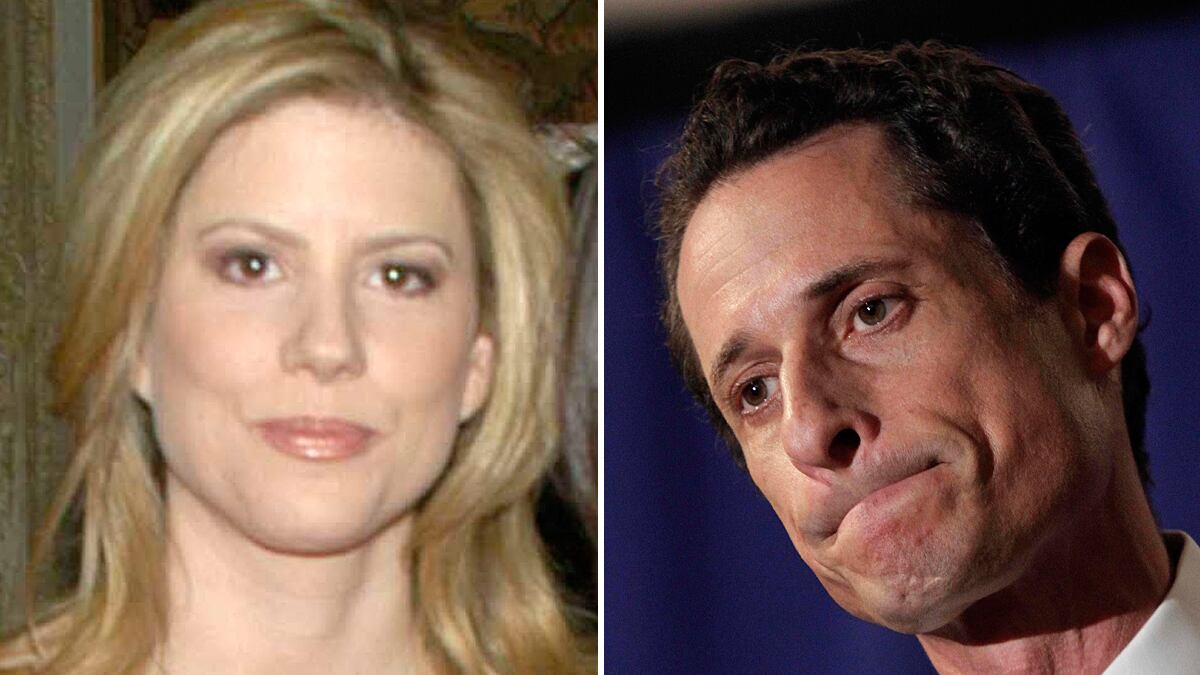A few days after Anthony Weiner tried to send a 21-year-old college student a picture of his wiener he also Tweeted me, but it’s not what you think.
I remember seeing Congressman Weiner’s Twitter account before his scandal and I was impressed by his use of the hashtag. His account, unlike most other politicians, seemed like it was written by him and not his press secretary or member of his staff. It was one of the reasons that I told The New York Times that Weiner was my favorite Democrat along with his outrageous YouTube rants. I’ve also been a fan of Huma Abedin, his wife, ever since I met her a few years ago.
On May 29, Weiner publicly thanked me for “my kind words in The New York Times and for [my] support of gay marriage.” His Tweet has since been retweeted to me a lot this week, with a lot of bad puns and poorly constructed jokes attached. I had started following him back on Twitter. Although, let it be said, I did not receive any direct messages from the congressman.
This week, my favorite form of social media has been blasted in every news outlet with Weiner’s infamous Twitpic seen around the world. Twitter is the most impulsive form of social media, but it’s still the most celebrated among politicians and pundits within the beltway, which is curious, since it can destroy any sense of privacy. Some of the most popular users include the president himself with 8.5 million followers (he trails Lady Gaga and Justin Bieber), Al Gore with 2.2 million followers and Newt Gingrich with 1.3 million followers. My dad uses Twitter to talk about pork barrel spending going on in Congress, among other things, and my mom brings awareness to her charities and posts pictures of her two Yorkshire terriers Lucy and Desi. That being said, the dangers of social media are also becoming more apparent. A bad Tweet can cause scandal, shame, even possibly end a politician’s career.
So I have to ask: What do politicians really gain by using Twitter? There are only a handful of politicians who are truly great on Twitter—the rest rely on their account to release press releases. But even the entertaining Tweeters stumble because the only way to succeed in the medium is to be unscripted. Last year, Sarah Palin made international news by tweeting “refudiate,” which was not a word before Twitter, but has since been added to the English dictionary. Her detractors pointed this out as another sign of her lack of intelligence. When Joe Miller ran for Senate in Alaska, he Tweeted that he was looking at real estate in D.C. He sounded so arrogant, he lost the election, possibly in part because of that Tweet.

On the positive side, I find that if I like a pundit or media personality and start following them on Twitter, I tend to like them more and become a bigger fan of theirs. If I follow someone and I don’t like their Twitter feed, I unfollow them and often have a changed opinion of the person. That’s probably the appeal of Twitter to many political figures: at a time when the 24-hour news cycle takes away most of the control they have over their image, it allows them to be themselves. But is it too much information?
As we sit on the cusp of a new election cycle, Tweets are only going to become more powerful and dangerous.
As we sit on the cusp of a new election cycle, Tweets are only going to become more powerful and dangerous. It is the simplest way to reach the largest audience in the shortest amount of time. And when it comes to politics, the most important thing is always controlling the message, which may no longer be possible in the ever instantaneous social media world we are living in. By the way, I no longer follow Congressman Weiner on Twitter at the request of my mother. She said it made her uncomfortable.




